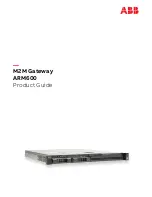
2
The access point (AP) or Wireless LAN controller (WLC) starts the authentication process using Extensible
Authentication Protocol (EAP) by sending an EAP Request ID to the mobile device.
3
The mobile device sends a response for the EAP Request ID back to the AP or WLC.
4
Upon successful authentication, the mobile device sends an IPv6 FSOL that could be router solicit, neighbor
solicit, or neighbor advertisement, to the iWAG.
5
The iWAG sends a RADIUS Access Request to the AAA server asking it to authenticate the subscriber.
6
The iWAG creates a MAC-based ISG session and pulls the subscriber profile from the AAA server. If the
profile has the AAA attribute value as "Cisco-AVPair=mn-service=dual", then the subscriber is authorized
for both IPv4 and IPv6 data transfer. Similarly, the AAA attribute value of
"Cisco-AVPair=mn-service=ipv4" or "Cisco-AVPair=mn-service=ipv6" represents the IPv4 or IPv6
protocol, using which the subscriber is authorized to send data.
7
The iWAG checks whether the ISG session for the MAC address is initiated or created.
8
The AAA server sends the RADIUS Access Accept message to the iWAG.
9
If the received profile has "cisco-mpc-protocol-interface" attribute with value as pmipv6, then iWAG
initiates PMIPv6 tunneling by sending a Proxy Binding Update (PBU) message to the local mobility anchor
(LMA).
10
The LMA responds with a Proxy Binding Acknowledgment (PBA) message that includes IP address,
gateway, and mask.
11
The PMIPv6 tunnel is established between the iWAG and the LMA.
12
In response to the IPv6 (RS) FSOL sent, the iWAG sends a router advertisement (RA) packet using SLAAC
that includes the IPv6 prefix, to the mobile device. The mobile device appends the IPv6 prefix to it's 64-bit
(EUI or MAC address appended with FFFE) to form a unique 128 bit address.
13
The IPv6 traffic can flow through the PMIPv6 tunnel.
14
The mobile device sends a DHCPv4 Discover message to the iWAG.
15
The iWAG sends the IPv4 address through a DHCP Offer message to the mobile device. The iWAG
provisions the IPv4 stack.
16
Both the IPv4 and IPv6 traffic can flow through the PMIPv6 tunnel.
Intelligent Wireless Access Gateway Configuration Guide
OL-30226-03
123
Call Flows for Dual-Stack PMIPv6 and GTP
Dual-Stack Mobile IPoE Session with IPv6 ND as FSOL for PMIPv6 Call Flow
Содержание Intelligent Wireless Access Gateway
Страница 40: ...Intelligent Wireless Access Gateway Configuration Guide 32 OL 30226 03 IP Sessions Over Gigabit EtherChannel ...
Страница 44: ...Intelligent Wireless Access Gateway Configuration Guide 36 OL 30226 03 Multiple Flow Tunnel ...
Страница 64: ...Intelligent Wireless Access Gateway Configuration Guide 56 OL 30226 03 GTPv2 Support in the iWAG ...
Страница 72: ...Intelligent Wireless Access Gateway Configuration Guide 64 OL 30226 03 Configuring ISG Policy Templates ...
Страница 86: ...Intelligent Wireless Access Gateway Configuration Guide 78 OL 30226 03 Dual Stack Support for PMIPv6 and GTP ...














































